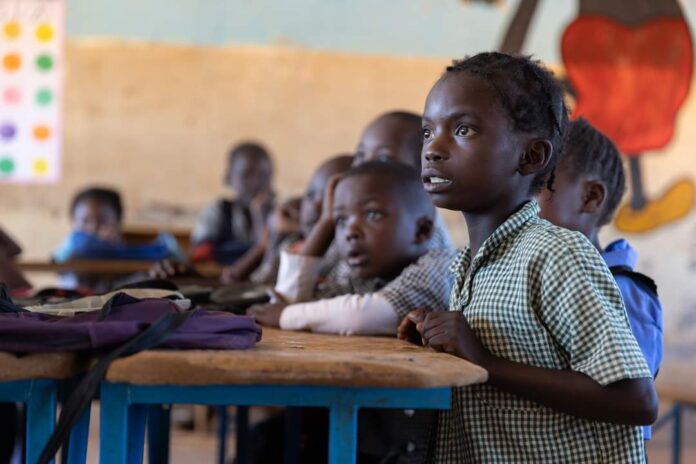In a groundbreaking achievement, Sightsavers Nigeria has clinched a prestigious award at the United Nations Office in Vienna on February 21 for its exceptional strides in enhancing the accessibility and quality of primary education for children with disabilities. The accolade, presented by the esteemed Zero Project, commends Sightsavers’ commitment to inclusive education, particularly its collaboration with organizations of people with disabilities (OPDs) and the implementation of a locally led blueprint in Jema’a, Kaduna state, Nigeria.
Through the Inclusive Futures program, generously funded by UK Aid, Sightsavers has pioneered efforts to empower children aged 4-14 living with disabilities in Nigeria, ensuring their fundamental right to education is not just acknowledged but actively supported.
Dr. Sunday Isiyaku, Country Director of Sightsavers Nigeria, expressed immense pride, emphasizing the significance of the Zero Project award in recognizing their inclusive education initiatives. The collaborative efforts with OPDs such as Women with Disability Self Reliance Foundation and the state Ministry of Education were acknowledged, reinforcing the belief that every child, irrespective of disability, deserves access to quality education.
Johannes Trimmel, the Inclusive Futures program director, highlighted the global recognition from the Zero Project awards, stating, “It means so much to have our work recognized on a global stage.” He stressed the importance of including people with disabilities and their representative organizations in development programs to shape societies positively.
The Zero Project awards, attended by around 1,000 individuals from 100 countries at the United Nations’ Offices in Vienna, spotlight organizations that have successfully eliminated barriers for people with disabilities through innovative and scalable solutions. Sightsavers’ collaboration with the International Disability Alliance (IDA) played a pivotal role in securing this honor.
Sightsavers’ education projects, spanning Bangladesh, Kenya, Nepal, Nigeria, and Tanzania, have contributed to increased enrollment and retention rates for children with disabilities in mainstream schools. The organization’s commitment to inclusivity is evident in its vision of a world where avoidable blindness is eradicated, neglected tropical diseases are treated and eliminated, and people with disabilities participate equally in society.
The Inclusive Futures program, a flagship disability development inclusion initiative funded by multiple donors including UK Aid and USAID, has brought together leaders and specialists from over 20 organizations to test and scale inclusive approaches in health, education, work, and combating stigma and discrimination. The program generated robust evidence on including people with disabilities in development and humanitarian programs, playing a crucial role during the COVID-19 pandemic in Bangladesh, Kenya, Nepal, Nigeria, and Tanzania.
Inclusive Education Project Key Achievements:
Nigeria, facing the highest estimated number of out-of-school children globally, grapples with nearly 90% of children with disabilities out of the education system. The Support Mainstreaming Inclusion so all Learn Equally (SMILE) project, led by Sightsavers, orchestrated a consortium of experts to innovate and test a locally led blueprint for inclusive education in Kaduna state.
Key accomplishments include enrolling 280 children with disabilities in schools and increasing attendance rates from 58% to 68%. The project trained 124 teachers and eight headteachers in inclusive education, incorporating the use of the Child Functioning Module developed by the Washington Group/UNICEF. Moreover, 40 teachers received training in effective teaching techniques, assessments, and utilizing braille and sign language.
This transformative project, spanning from May 2019 to September 2023, not only strengthened the educational system but also heightened support for children with disabilities in schools, exemplifying the potential to break down barriers and pave the way for a more inclusive educational landsc.


